The saying goes that a parent knows. I guess the same is true even when your children aren’t human.
Last Saturday, my mare was in the wash rack giving me side eye to assess whether I brought treats. I noticed something. Her sclera (the white portion of the eye that shows when your horse’s head is facing forward but they are looking to the side) was red. There was no swelling, no tears, no pain, and she wasn’t squinting.
I have seen and treated several corneal abrasions and ulcers in my time. But her cornea looked perfectly glossy and intact.
I’ll admit it: I am a concerned and involved parent when it comes to my animals. But when you know, you know.
I put on a fly mask hoping it was allergies. Sunday the redness seemed a bit less. Off we went to a horse show. After my second test, the Judge mentioned her eye.
Neo-Poly-Bac ointment every eight hours until the vet appointment. And then I got the call: no ulcer, no abrasion. Apparent uveitis without a clear cause. The vet gave her a solid dose of atropine to dilate the eye. In the aqueous fluid of the front chamber, there was a fibrin deposit.
My horse is like an odd ailments junkie: if you are selling, she is buying. From respiratory infections to ligament injuries, she has been through it all. The silver lining is that my vet is like family. She was honest but tried not to scare me. And most of all, she already knew what my response would be: test her for everything and treat her for what we know. A few generous banamine doses later and the redness subsided.
By Thursday we had the pressure readings. And they are wacky. The symptomatic eye came back a very normal 14. The seemingly healthy eye came back with several very abnormally high readings in the 80s. I made an appointment to see a leading equine ophthalmologist at New Bolton Center next week. I don’t mess around with eyes.
In the meantime, my phone rang this evening. My (genuinely surprised) vet told me the results of the blood-work she pulled just as a precaution. “She tested positive for Leptospirosis.”
Leptospires are spiral-shaped bacteria that swim, for lack of a more scientific term. Horses housed near where possum, raccoon, fox, squirrel, rabbit, and bobcat live have increased potential for exposure to leptospires. Dogs, cattle, pigs, and skunks have also been identified as hosts. Rodents, including rats and mice, are “reservoirs” of the disease.
I wouldn’t even venture to guess where, when, or how my mare was exposed because with the exception of pigs and cattle, she has lived in close proximity to all of those critters. And the pathway of infection is generally through ingestion of urine. Think about how many animals might pee in your horse’s water trough in any given night! Last fall, I grabbed my bridle from the tack room and it moved as a mouse fell from my hand to the floor.
One recent abstract suggests that acute respiratory issues may be caused by Leptospirosis. While I have no reason to believe the two are linked, my mare did come down with a respiratory infection this winter.
And Leptospirosis can cause severe kidney and liver problems.
Though there isn’t scientific consensus, Leptospirosis has been linked to recurrent uveitis (moon blindness) in infected horses.
Leptospirosis is considered rare, but there have been outbreaks in several states over the years. Just this spring, there’s a spike in Lepto cases of dogs in Florida. Despite substantial research, there is no vaccine for horses. Dr. Yung-Fu Chang at Cornell is working to develop one.
On the one hand, I’m terrified about what this means for my sweet girl. Any damage to her organs, including the eye, could be irreversible. But on the other hand, I’m glad to have some clear answers and specific treatment protocols. She will start on an oral antibiotic to kill the leptospires and a probiotic to support her digestive system. Hopefully the experts at New Bolton will have some guidance on future eye care. We’ll take it one day at a time. And those mice better watch out…

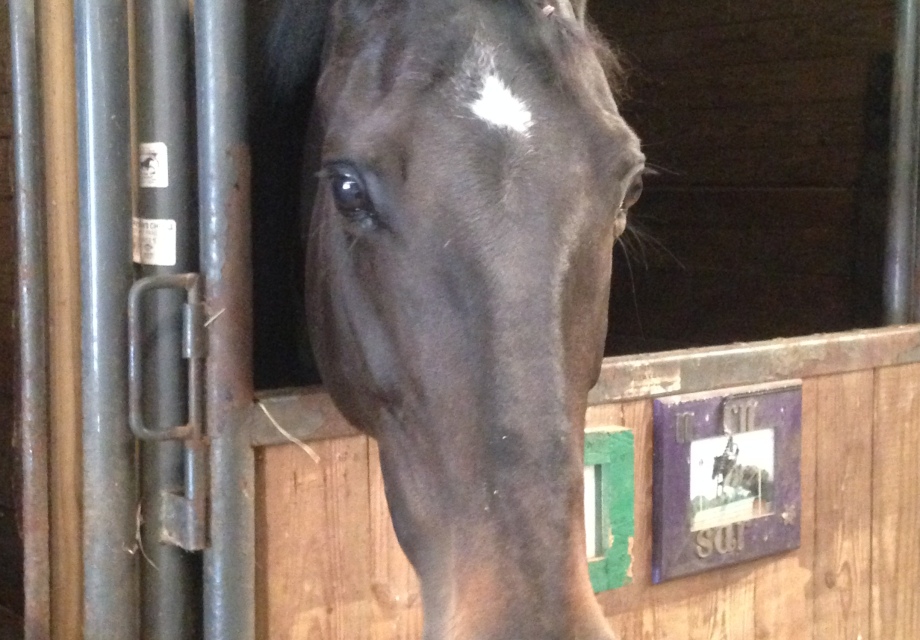
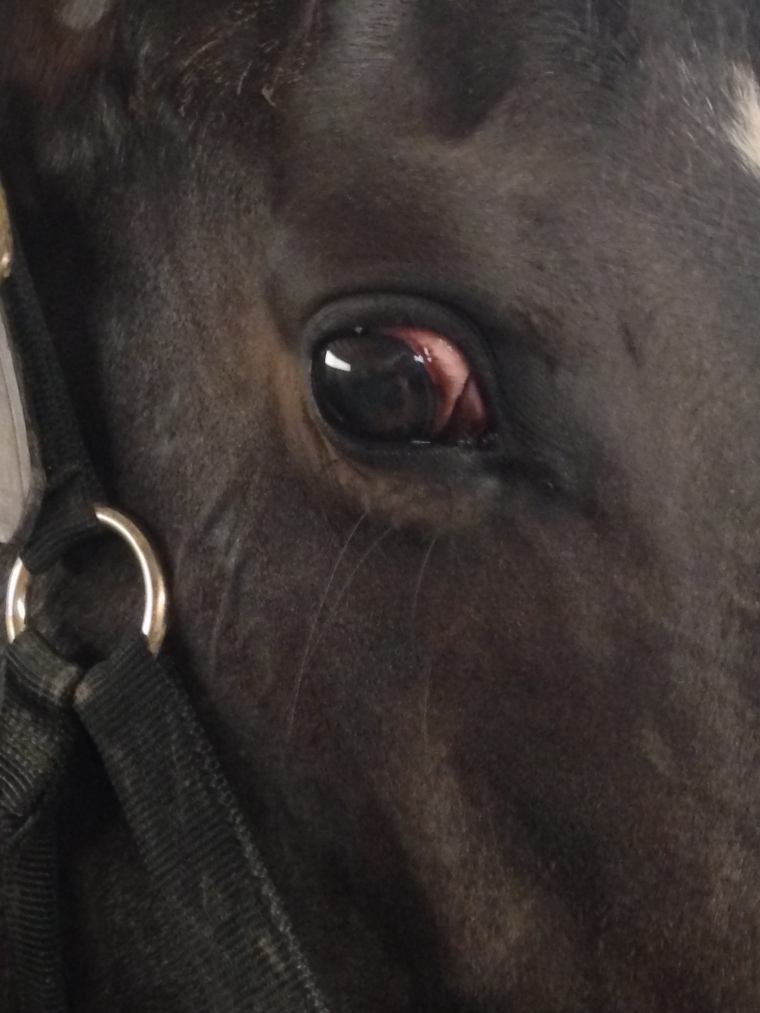
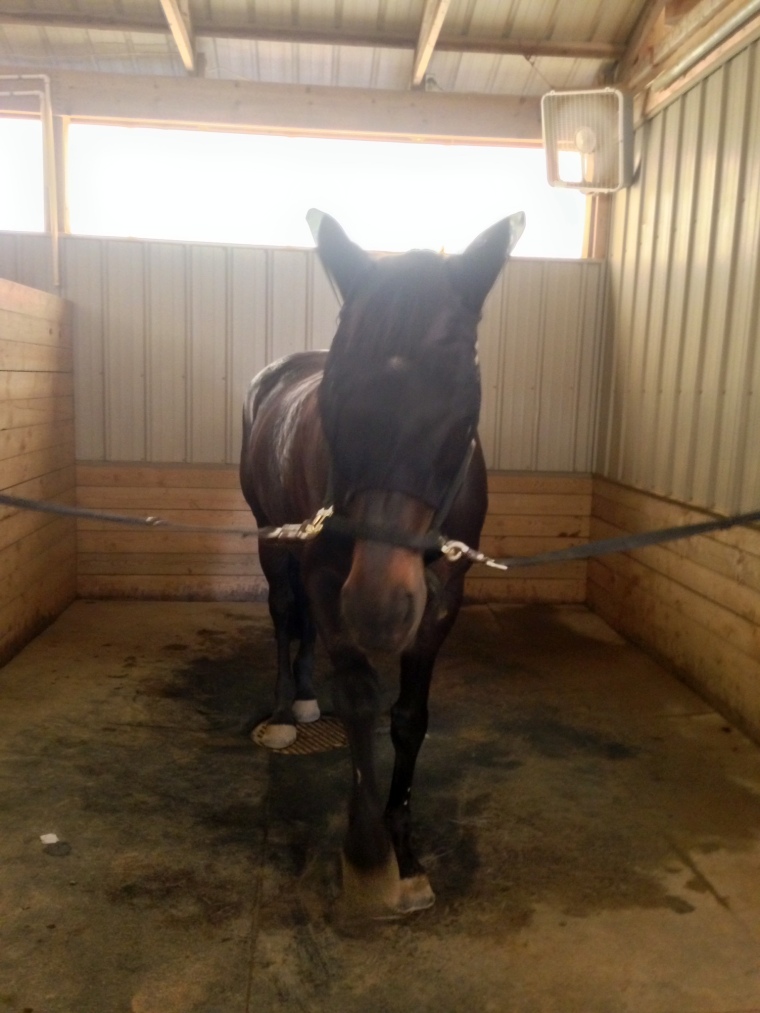
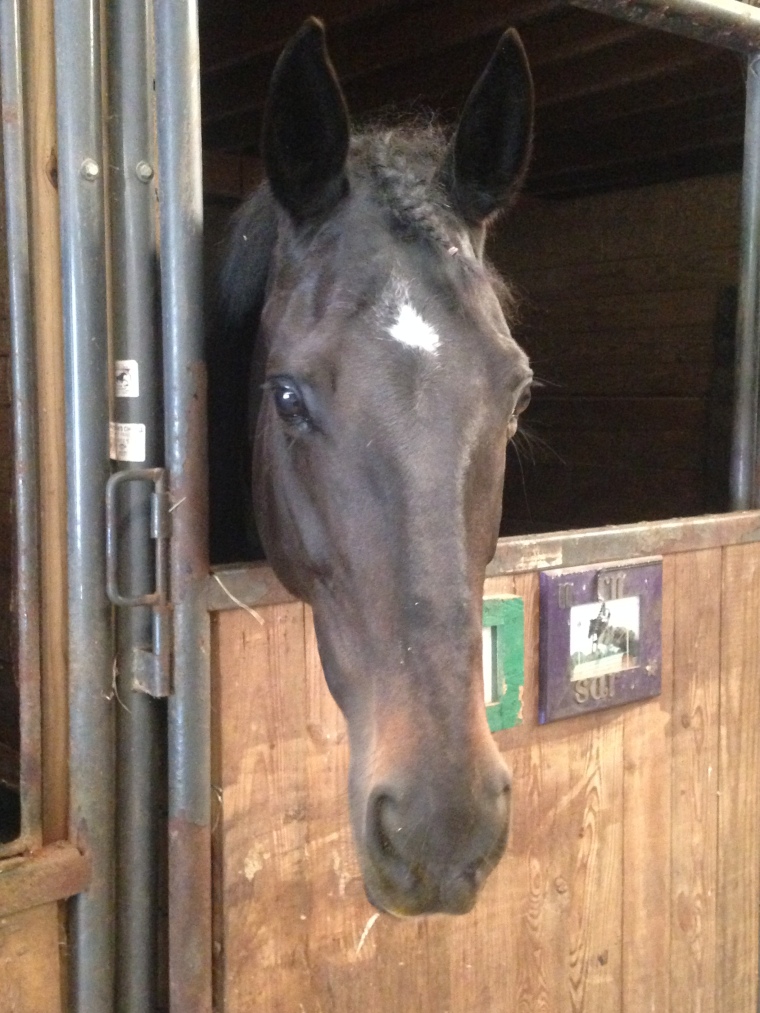
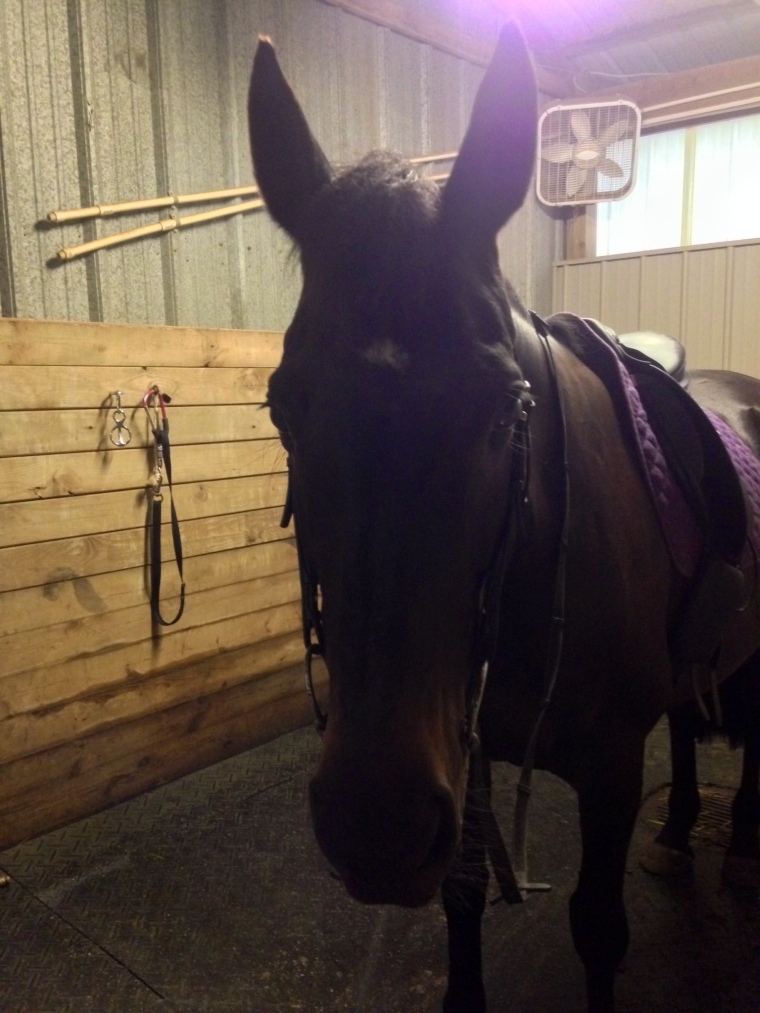
Sorry to hear but it is good to have a diagnosis. At least that way you can develop a plan. Keep me posted.
Thanks and will do. Frustrating news, but I agree. At least we know what we are dealing with.
She’s lucky her mom is on top of her care, I sadly know a lot of owners who would brush it off. Sending hugs.
Thank you Kate. It was so subtle and my mare is pretty stoic. I really appreciate the support.
Can it be cured? I hope she recovers quickly and her organs have not been irreversibly damaged. Well done for being so caring. Many people would have just said “ahh it’s just dust” and waved it off.
I believe the antibiotics will kill the infection. Unfortunately there is no guarantee she wouldn’t contract it again. I’ll really have to monitor her closely because I’m telling you, it was such a subtle thing. There were no symptoms other than the redness. Thanks for the support.
I hope this clears up quickly! Poor girl. She’s lucky to have you as her mama!
Aw, thank you Katie. Praying for your swift and complete healing too!
Wow! Such sad news, but I commend you for paying close attention to her eyes. That was very well caught. I also commend the vet for the blood samples when it seemed like a simple red-eye situation. Keep us posted! I hope she kicks those nasty bacterias soon!
Thanks Shelby, I agree. We are just lucky to have taken it seriously. I try never to wish time away, but I’m praying hard for next week to come soon so we can get some better answers from the ophthalmology specialist. Thanks for your positive thoughts.
Oh So sorry to hear this. Hoping she will come out just fine. Thank you for writing this. Lepto wasn’t even on my radar!
Thanks Elinor. It wasn’t on mine either, so I figured others might want to be aware. For such large and strong creatures, horses are quite fragile.
The part about the mouse on your bridle made me shudder. Oh your poor girl! She looks so sweet with her forelock braid. I’m so glad you have a wonderful vet you trust. Good job being vigilant about her eye and not brushing off the judge’s comment. Sometimes with animals is so hard to know. I don’t want to overreact to everything like the crazy Weimeramer lady from the movie Best in Show. On the other hand, sometimes you have to call the doc amd not worry about being a vicarious hypochondriac. Please keep us posted on your mare’s progress.
It is so true. It’s a really tricky balance. Best in Show is one of my all-time favorites and I do often tell myself not to be neurotic! Thanks for the well-wishes. Unfortunately, both eyes looked suspect last night. I’m just hoping the specialist at New Bolton Center has some good guidance for us next week.
😦 Speedy recovery for miss murmz
Thank you, Lola. Fingers, toes, EVERYTHING crossed…
ugh those nasty little pathogens messing everything up! We caught an EPM infection in Wiz early on and with proper treatment it cleared up pretty successfully. I hope you have the same success with your girl! Sorry for the terrible news 😦
Yes, they are awful things! It’s reassuring to hear you caught and treated a nasty bug like EPM successfully. Thank you. It is scary.